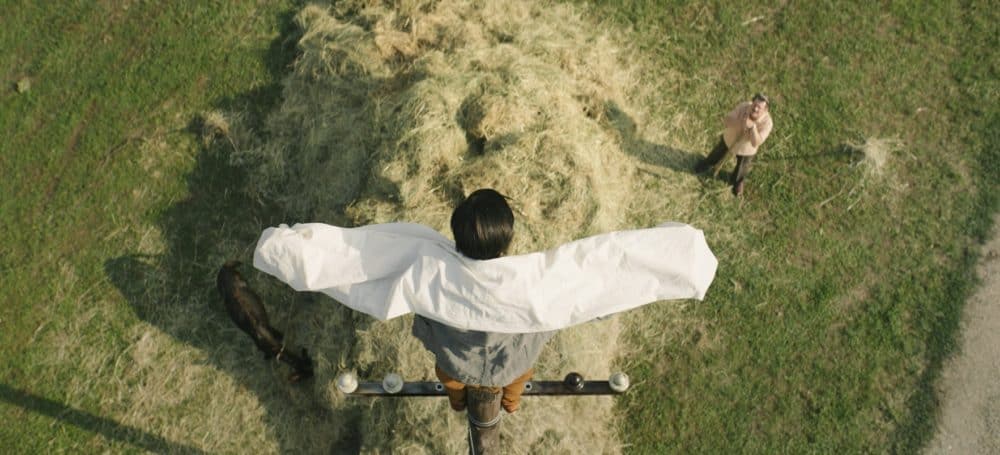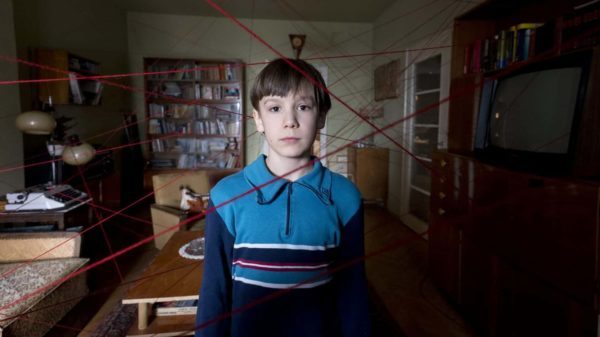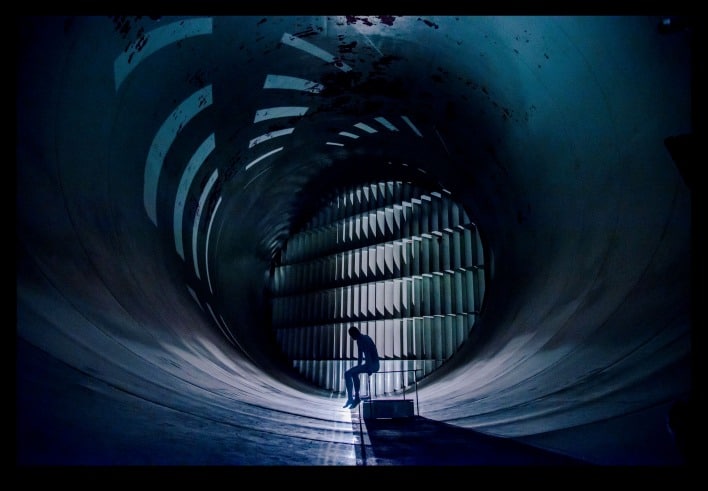The beautiful Corvin cinema in Budapest was the venue for this year’s Hungarian Film Week. It was an opportunity to catch up on the Hungarian films that I missed last year, some of which I was quite eager to see. First up was Tegnap (Hier 2018) by Bálint Kenyeres. Even though it’s a first feature, the director has made a splash with his shorts Zárás (1999), Before Dawn (2005) and A History of Aviation (A repülés Története 2009). The latter competed in Cannes.
Hungarian Film Week Yesterday
The Tegnap (Yesterday) project has had a long and tortured gestation period, but finally, the film is now completed. The story concerns Victor Ganz, a businessman who has to go to Northern Africa to sort out some problems with a building project. Once there, memories creep upon him, and past and present seem to be intertwined. He once had a lover here that disappeared without a trace. What starts as a film that feels highly derivative of works like The Passenger (1975), or even worse, the films of Alain Robbe-Grillet set in the region, suddenly crystallizes into something much more interesting and mysterious. I will get back to the film in a separate text.
The Fancy of Gábor Reisz
When I saw Gábor Reisz’s first feature, For Some Inexplicable Reason (Van Valami Furcsa és Megmagyarázhatatlan 2014), I liked it, but I was not as crazy about it as some other people. It should be said that those individuals were way younger and way more Hungarian than I am so that I might have been an outsider to this description of life in Budapest at the time. I liked its quirky style and the adventurous approach of Reisz’s direction, with a film made on a very limited budget.
Now, he was back with Bad Poems (Rossz Versek 2018), playing the lead, as well as writing and directing. Tamás is 33 years old and has just been dumped by his girlfriend in Paris, of all places. To process his loss, he looks back at his life and what led to the situation he is in. Thus, we follow him in a non-chronological rendering of his youth. What begins as a portrait of Tamás and his friends and lovers turns into a study of Hungary as well. Zsolt Kovacs and Katalin Takacs play the parents once again.
The film is full of interesting directorial touches, but sometimes I get the feeling that Reisz gets trapped in his own ingenuity. There are lots of things to like, and some of the humour is actually quite dark and poignant, not least the gags concerning politics. Still, I feel that Reisz could have killed some of his darlings. The fourth wall doesn’t always have to be broken, let alone smashed. Even with those objections in mind, he is definitely a director I will continue to follow.
If Gábor Reisz’s second film shows promise, the same can, sadly, not be said for another second feature: X (X-the eXploited 2018) by Karoly Uj Mészáros. After helming the delightful Liza the Fox-Fairy (Liza, a rókatündér 2015), hopes were high for the director’s sophomore work. This time around, we’re presented with a detective story in the vein of recent Scandinavian thrillers. The result is a very generic work, even though the director tries to spark the viewer’s interest with some odd angles and upside-down drone shots. There is not much to say about this film other than to hope that it was a lapse of judgment and that the first feature was not just a fluke.
György Pálfi’s Voice
György Pálfi might still be mostly known for his first two films, Hukkle ( 2002) and Taxidermia (2006). Later, he tried to mount a very ambitious project about Miklós Toldi that eventually had to be scrapped due to lack of funding. His latest offering, His Master’s Voice (Az Úr Hangja 2018), is loosely adapted from Stanisław Lem’s novel. Once again, the word ambitious comes to mind. This is obviously a film with very lofty ambitions and literally cosmic in scope. The storyline feels more grounded, though. Péter Horvath is travelling to the US in search of his father, who disappeared in the seventies to work on science projects that might involve extraterrestrials.
There are flashes of Pálfi’s usual visual flourishes. If some scenes in Free Fall (Szabadesés 2014) felt inspired by Fringe (the man stuck in the wall, to name just one) here, they are more difficult to pinpoint. My feeling, admittedly after a single viewing, is that the grand ideas and ambition are not connected to the rather mundane story. What sticks in mind afterwards are rather a few moments that seem to come from a different film. Maybe a second viewing would open up new dimensions.
It’s, of course, not the first time that a work by Stanisław Lem has inspired a movie, even in Hungary. Pater Sparrow made 1 in 2009. It is an excellent, elusive film, expertly edited by Wanda Kiss. Luckily, the whole film is available on YouTube.
Blossom Valley (Viragvölgy 2018) is a film that revolves around the Instagram celebrity Bianka Berényi. She plays or rather embodies Bianka. A sociopath who steals a baby on a whim hooks up with the mentally disabled Laci, who actually seems to fall in love with her. There’s not much more to the story than that. In my mind, there’s not all that much to the film either, even if it has a kind of edgy feel that might appeal to some, including the jury at Karlovy Vary. First-time feature director László Csuja apparently used quite a bit of improvisation during the shooting, which shows.
Lajkó in Space
What if Lajka wasn’t the first living being in space but a gypsy called Lajkó? This question is posed in Lajkó Gypsy in Space. (Lajkó Cigány az Urben 2018) directed by Balázs Lengyel. Lajos Serbán is a pilot who has always dreamed about space. In 1957, it seemed he would get a chance to go there due to the Soviet space program. As a child, Lajos experimented with using human excrement as fuel. This resulted in a horrible accident that killed his mother when a toilet took off into space with her inside.

The way this scene is shot makes clear that this will not be a film with subtle humour. The sequence ends with the mother’s blood raining on Lajkó, his father and others witnessing the tragic event. Thus, the tone is set. The film is well-meaning and aims to tackle complex and sensitive subjects, such as racism and homophobia, but far too often, the film slips into broad, not to say crass, comedy. Characters include closet gays, a Mongolian Buddhist and an Estonian suicide bomber. The film outstays its welcome way before the end.
Deva by Petra Szöcz is reviewed in the second Nowe Horyzonty text. Laszló Nemes’ Sunset (Napszállta 2018) will be covered in a separate text.





Pingback: Tofifest Day 3 - The Disapproving Swede
Pingback: A cinematic breath of fresh air: The films of Ágnes Kocsis Part 1 - The Disapproving Swede
It’s been more than tree more years down the road, and Bálint Kenyeres’ Tegnap is still not available in DVD/Bluray (and it did not have a regular release, beyond festivals, as far as I can tell). Even the Facebook page has not been active since 2019. I am extremely interested in watching this, do you have any info on it?
Hello,
Thanks for reading. The release in Hungary was met with hostile reviews, and I think it had a very short run. I talked about it just a few months ago with town Hungarian filmmakers who were surprised that I had seen it. It’s a sad situation.